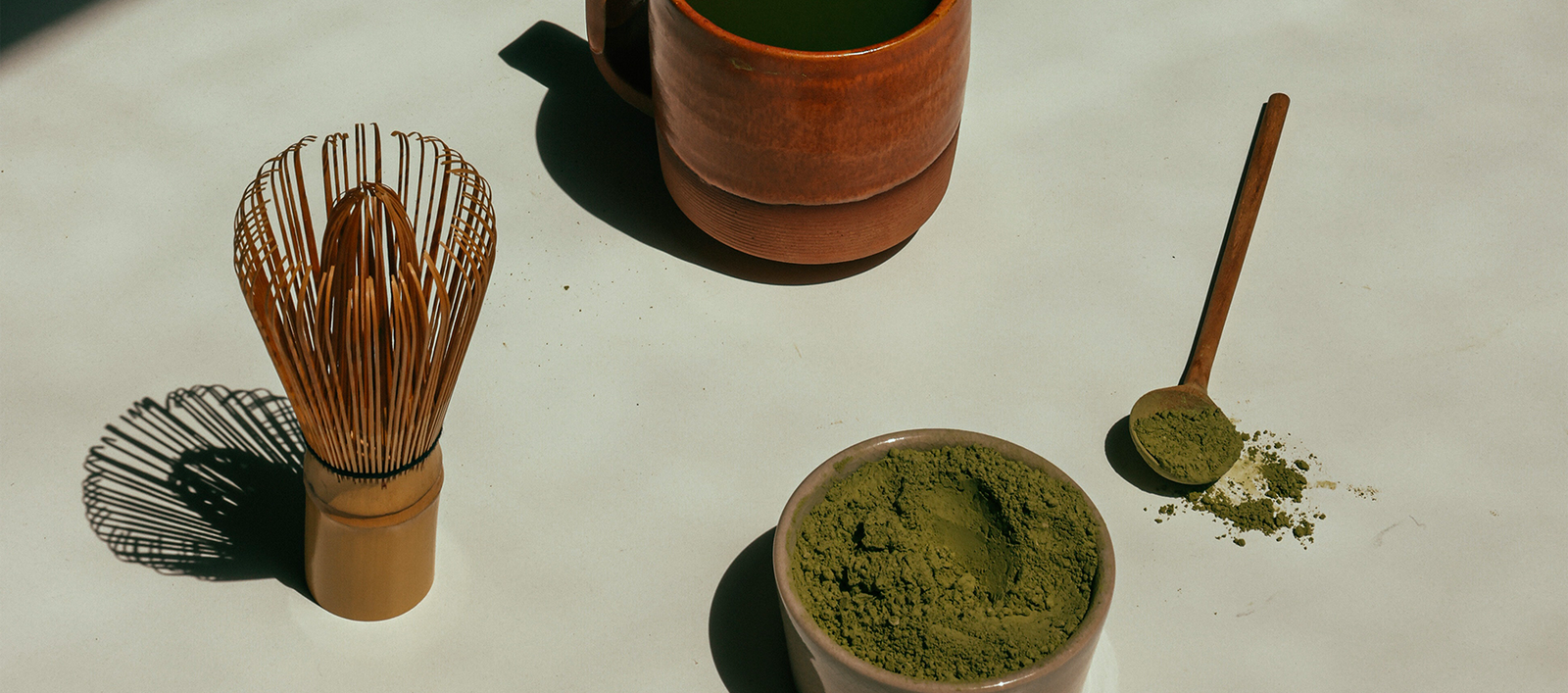
When we’re talking about Japanese Tea Ceremony, a vivid image of a traditionally furnished room with a solemn atmosphere may jump to mind. This self care ritual that’s deeply intertwined with the advent of Buddhism in Japan started as a way to improve our health and evolved into a way to enrich our soul. Everything has a role as well as meaning in a Tea Ceremony as it balances humanity and nature delicately through deep consideration for everything and everyone that’s involved in the ceremony.

This nature is is reflected in “Shiki-Shichishoku” which emcompasses the spirit of Sadō in two parts: Shiki (四規, 4 principles) which expresses the essential nature of tea ceremony through harmony, respect, purity and tranquility.
The second part refers to Shichishoku, the 7 Rules of Sen no Rikyū, the tea master from 15th century Japan. Wakei Seijyaku consists of 和 (harmony with other people), 敬 (treating each other with respect), 清 (purity in spirit and surrounding), and 寂 (maintaining tranquility in our spirit), representing the goals that a Tea Ceremony should achieve.
When asked by one of his disciples what were the most important things about tea ceremony, the tea master Sen no Rikyu responded,”First, you must make a delicious bowl of tea; lay the charcoal so the water boils; arrange the flowers as they are on the field; in the summer suggest coolness, in the winter, warmth; do everything ahead of time; prepare for the tain, and give those with who you find yourself every consideration.” Taken back by his simple answer, the disciple said “even I know that much.” Then Rikyu said, “If you have mastered them, I will become your student.” This teaching is known as Rikyu’s Seven Rules.

Shiki-Shichishoku gives us insights on what a Tea Ceremony does to polish our awareness and focus. The ritualistic nature of Tea Ceremony invites us to do things consciously, carefully, and slowly. In our modern day, this heightened awareness for the subtle things in life can help us to be a better person and improve our holistic wellness; work seriously when you’re working and rest peacefully when you’re taking a break. This focus on what truly matters in each moment keeps our mind in tune with what you’re trying to achieve.



While hospitality lies at the heart of a Tea Ceremony, it’s also an opportunity to practice discipline both for the guest and the host. As a guest, you’re expected to be seated in silence as you enjoy the tea prepared by the tea master. Conversations do happen during a Tea Ceremony, particularly regarding the origins of the utensils used, but small talk shouldn’t occur between the participants. It is a moment to be focused on the present, to appreciate the beautiful harmony between man and nature in that particular moment.
“The art of life lies in a constant
readjustment to our surroundings.”

Tea ceremony also teaches the power of knowledge accumulated through routine. Sadō is more than merely brewing a good cup of tea, but it’s also about knowing the seasonality of flowers, how to conduct oneself, and appreciation of art, calligraphy, and pottery, all done through the act of action. This is intended to gain the presence of mind and depth in one’s actions instead of merely being knowledgeable in a particular subject.
In our modern life that moves at a very fast pace, slowing down to make every little aspects of our life into a “ritual” that should be done with respect and care could be a way to be a better person and to enjoy life more deeply


The enjoyment of tea in Japan started as a way to improve health and to help the Zen Buddhist monks stay aware during meditation thanks to its mildly stimulating property, allowing the monks to receive the teachings more readily. Zen and Tea Ceremony have been closely linked to each other, and the Zen philosophy can be found in many aspects of a Tea Ceremony.
The three main virtues of the Tea Ceremony highlight Harmony, Respect, and Tranquillity.
The Harmony aspect seeks to bring the host and guests of a Tea Ceremony together through the same appreciation for the setting, nature, and the tea itself. The virtue of Respect teaches us to respect everyone that’s involved in a Tea Ceremony, including the farmers who spent their time, energy, and love in planting tea that we enjoy. The tranquillity aspect of a Tea Ceremony invites us to empty our mind and to fully appreciate the flavor, texture, and aroma of the tea.
There’s a whole world inside every cup of tea, and this world is never the same. Even if we use the same Matcha tea powder, the same water, and the same utensils to prepare a cup of tea in the same room, we can never truly replicate the experience held in a cup of tea at that particular time. Hence the importance to truly be in the present and treat every cup of tea with the utmost respect.

The art of drinking tea has evolved into a way of appreciating life and the beauties that lie in its imperfections. Everything is prepared with meaning in the Tea Ceremony, from the selection of teaware, decoration, room layout, surrounding ambience, and the matcha tea itself.
Tea Masters across the centuries sought to perfect this art, and today, the tradition lives on. By being aware of our tea sources, we can appreciate the tea itself even more; an act of harmony that brings tea farmers and tea lovers together, all connected with the same passion and reverence for tea. Shikohin embodies this idea by providing Japanese-inspired products to elevate your relaxation during your night time ritual. All of Shikohin’s products are carefully curated for quality and sustainability that connects you and nature in a harmonious way, just like the bond that forms in a solemn Tea Ceremony.